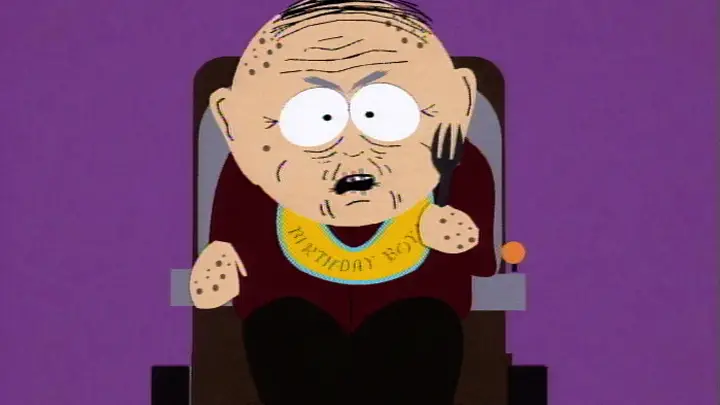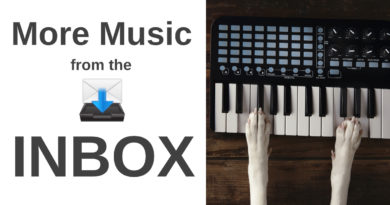
MUST READ: Why old music is better than today’s new music
If you’ve ever heard me speak on music somewhere, there’s inevitably an audience question that goes something like this: “Why is today’s music not as good as when we were young?” My standard answer to this is “Every generation has a right to believe that the music of their youth is the greatest music of all time. Young people want music that is their own, material that articulates their wants, wishes, dreams, fears, desires, and attitudes. And they gravitate to the music made by their peers because it’s what they can most identify with. It’s always been this way and it will always be this way.”
I may have to amend that outlook. There are new data that indicates otherwise.
This is NOT some Grandpa Simpson rant nor me pining for the music of my youth. And yes, there is plenty of excellent new music out there being made by young people. But if we start looking at the data and the engagement fans have with new music, something seems…off.
New data from MRC, the monitor of all things music in North America, points out that out of all the music consumed in the US, 70% is of material more than 18 months old–and frequently older. Much older. While the latest hits get all the attention and press, it is, in fact, older songs that are driving revenue. And this consumption pattern is across all ages. The old standard rule of young people mostly people into new music doesn’t seem to work anymore.
In other words, the data appears to indicate that music fans are increasingly gravitating towards older material because…well, because it’s better than the stuff coming out today. It’s more interesting. It’s less predictable. And it offers more melodic/structural/lyric surprises.
Someone has finally articulated why this is–or more specifically, why what we’re getting today isn’t as good as those solder songs.
This is from Bobby Owsinski writing for Hypebot:
Is Old Music Better?
Let’s address the elephant in the room first – is old music better than new music? In some ways yes, and other ways, no. There’s always great music being made regardless of the era, it’s just that we may never get to hear much of it these days. Record labels drive what’s popular, unfortunately, and whatever the current trend is, they want more of it. As a result, we get an exciting new trend that gets slowly watered down with weaker and weaker imitations (look what happened to hip-hop).
One of the things that drove music in the 1970s and 80s was the search to be different. Artists and labels weren’t afraid to take chances, and as a result, we had such a wide variety of great music to choose from. There were no sub-genres of music (i.e. trip-hop, death metal, etc) – it all fit under a big genre umbrella that no one really cared about.
FM radio was at its peak and you tuned in because of the specific tastes of the DJ, who was free to spin whatever he or she liked. As a result, the listener was exposed to a wide variety of artists. Marivishnu Orchestra was played right beside Deep Purple which was right beside Gil Scott Heron or Sly Stone.
Today we’re all about niche, and even worse, algorithms that feed us more of the same thing that we just listened to rather than something totally new and different.
It’s A Little Too Easy
But the hits are what we’re most often exposed to and they’re not lighting up the earbuds of even the demographic that they’re aimed at. I think a big reason for that is the fact that songwriting has gotten lazy. Not on purpose, mind you – just because the technology makes it that way.
Why practice your instrument, try to form a band, or learn how to record when all you have to do is find a beat or loop that you like and build the song from there? That’s not to say there haven’t been some great songs that came about that way, but a loop is a limiting factor in songwriting as it encourages simple two-chord songs with an even simpler melody. Plus add the fact that there are 10 or more writers on some songs and you have the lowest common denominator in songwriting that’s almost guaranteed not to take chances.
This gets rewarded and encourages others to write this way, and what we have today is the result.
Oh, there’s more. Keep reading. It’s important that you realize.
And then there’s this.


I like the comment made some years ago by Frank Zappa regarding the decline of the music industry seems even more poignant today. Link on youtube below.
Anecdotally this makes sense to me. I subscribe to Google’s YT Music, and one of the things I like about it is the playlists – both the curated playlists and the algorithmically generated ones. Yes, some of these are of the “best new music” variety and are centered on release dates, but a lot of them are centered around a mood or a genre or a topic. The release dates of the music on the playlist span decades. I still listen to albums, but these playlists are the primary way I discover music.
Which means these days I really have no idea what is “new” and what is just “new to me” and there’s really no value to me in putting in the effort to differentiate between the two. I can enjoy an album from 1987 as much as I can enjoy an album from 2022. And since the overwhelming majority of music was not made in the last year it stands to reason that most of the music I end up streaming won’t be either (regardless of quality).
I think also that we are seeing more of the old music in forms now that were a little less frequent when they came out, like hearing Led Zeppelin music in a Marvel movie. Popular culture is being driven by an older generation now.
I am in general agreement with this argument… but I am not sure how “new” it is. A lot of my peer-driven musical tastes were formed in the 1980s (ages 16-25). There was certainly music released in that decade that captured my attention but my friends and I tended to look back to the music of the 60s and 70s for the “really good stuff.”
It is also interesting for me to realize how much my musical tastes were formed by my parents and the eclectic range of music they listened to: classical, jazz, rock & roll, pop, country. Buddy Holly was amazing. Linda Ronstadt had an incredible voice. Gordon Lightfoot helped define Canada for me. And ABBA remains a guilty pleasure.
MONEY!